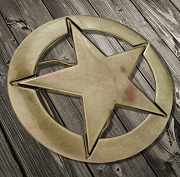El Estrago Bonito posted:I have come to the conclusion recently that no one involved in the making of Scion had any idea how math and statistics work. First of all they made a couple of the bloodlines/pantheons be much much much better than any other ones. If I remember correctly Atlantis is just head and shoulders better than every other pantheon at combat. They routinely produce pools that are like ten dice higher than everyone else just by fighting with guns or a chainsaw. One was an epic attribute, which I believe just gave you X number of autosuccesses on relevant rolls, where X equalled your level of Epic Attribute. Crazy but at least it's simple and accessible to more or less everyone. Most of the 'pantheons' got flavorful and interesting specialized abilities as a sort of 'clan discipline.' For instance, the Japanese pantheon got powers related to speaking to the animistic spirits in things, while the Norse got some kind of brutal death blood magic stuff. Greeks got Arete, which let you have the square of your Arete in extra dice on, I believe, whatever skill you chose to take Arete in. Now I do think you had to buy it separately for each skill. That said, Arete (Melee) 3 would give you 9 extra dice to roll, probably on top of a few free successes from Epic Dexterity (of course). Arete 5 would, if my memory is correct, give you 25. In essence, if you were a Greek you got Solar Excellencies.
|
|
|
|
|

|
| # ? Apr 23, 2024 08:40 |
|
Nessus posted:I never read that far in the line but there were two big dicebucket things as I recall. Since the game still unthinkingly apes the usual 1-5 scale that almost all other Storyteller games run on, these ridiculous numbers end meaning jack poo poo except in opposed rolls. But opposed rolls become largely meaningless at the high end unless you meet a foe that can evenly match you. (Most other Storyteller games fumble "throw numbers at it" in a vaguely similar fashion, but not to the same inane scale as Scion.) Strength is the only one that gets an out on this because lifting and throwing is one of the most granular systems in all previous White Wolf games, so it's just the same in Scion. This also wildly exacerbates the rocket tag elements in combat-strong Storyteller. Since it's a rip-off of Exalted 2E a similar problem could've arisen from social influence powers, but these problems are mostly cut off at the knee by a blanket rule of "spend one Willpower to ignore this power." And then of course there's Untouchable Opponent, the gotta-have-it Knack that doubled your Epic Dexterity auto-successes for dodging for the entire scene for 1 Legend. Again, manageable at the earliest levels, but once you hit Demigod anyone with that power just never gets hit in a straight-up fight; sideways tricks are absolutely required, and there are counters to those tricks out there. (It's not a crime to create a source of invulnerability that channels conflict sideways. Untouchable Opponent was just a really, really bad way of doing it. But, then, this have/have-not situation applies to most of the other staple combat powers as basic as physical Epic Attributes.) quote:Most of the 'pantheons' got flavorful and interesting specialized abilities as a sort of 'clan discipline.' For instance, the Japanese pantheon got powers related to speaking to the animistic spirits in things, while the Norse got some kind of brutal death blood magic stuff. As is often the case when you try to cram all possible concepts into a strict numeric hierarchy, this ended up hurting a lot of pantheons. There are lots of redundancies in powers like the Japanese Amatsukami purview. "It's like the last half dozen ranks, only slightly better!" Of course, they're spiced up by the largely random "Holy poo poo this power if exploited right can destroy my game" powers. Some first rank powers let you make sure a perfectly mundane plant survives another day, and others let you featherfall. A first rank Relic weapon gets a one-die bonus, while a Relic with some actual interesting power lets you summon a cadre of ninjas. quote:Greeks got Arete, which let you have the square of your Arete in extra dice on, I believe, whatever skill you chose to take Arete in. Now I do think you had to buy it separately for each skill. That said, Arete (Melee) 3 would give you 9 extra dice to roll, probably on top of a few free successes from Epic Dexterity (of course). Arete 5 would, if my memory is correct, give you 25. In essence, if you were a Greek you got Solar Excellencies. Nope again! Arete was on the same logarithmic scale as Epic Attributes. It just added dice and applied to an Ability. So Arete 3 would grant +4 dice, Arete 4 grants +7 dice, Arete 9 grants +40 dice. Also, you could trade in dice for a reroll on a 2-for-1 basis. This is slightly useful at low levels and becomes farcical at higher levels because the likelihood of you not steamrolling something with as little as a +16 dice bonus is pretty much nil, especially since that kind of specialization probably also means you're getting similar auto-successes from an Epic Attribute too (thereby chipping away at the value of your Arete!). Legend points (MP) were calculated as a square. Which at the high levels again becomes farcical because the vast majority of powers cost 1-3 of your 30+ Legend and last a pretty long time, and they come back at a pretty quick rate because they lifted stunt MP recovery directly from Exalted. That Old Tree fucked around with this message at 11:40 on Feb 17, 2013 |
|
|
|
Five golden manbabies to you, my good fellow, though I imagine you've had to deal with this stuff at much closer range, for longer. e: I expect dimly that Scion got tinkered with, probably as rules for playing American Gods, and probably only with the Greeks in mind. Then they had the bright idea that they could probably sell that poo poo and people would eat it up with a tablespoon (and on this, I must say, looking at my friends - they were right!) Nessus fucked around with this message at 11:48 on Feb 17, 2013 |
|
|
|
|
Many of the basic ideas behind Scion are pretty great, and easy to latch onto. It's just that the execution of the core three books was close to universally lacking, and not just in its systems. This drags down any further work, ensuring it can't fulfill its full potential regardless of how well-written. But it's such a simple, gameable concept at its core that it remains strong enough to maintain a following. Considering the
|
|
|
|
You will have to ask RBH for full details but I also understand that the treatment of the Aesir was essentially really insulting to actual Norse-derived cultures. Especially Jotunblut.
|
|
|
|
Also, helping the Nazis!
|
|
|
|
Mors Rattus posted:You will have to ask RBH for full details but I also understand that the treatment of the Aesir was essentially really insulting to actual Norse-derived cultures. Especially Jotunblut. Sharing blood is a way to make someone as close as family. And that's quite literal: After a blood sharing rite, the people saring blood would be brothers. Period. You could know if it was by birth or by blood, but it didn't make a shred of difference. It's sacred, not in the sense of "a god made it so" but in the "this is a big loving deal" sense. So when Scion posits that the Norse gods are regularly sharing their blood with animals, or worse, using this blood power to horrifically mutate things into fight-beasts, that's essentially saying that they take animals for brothers and that their blood is twisted, which is like calling them sheep-fuckers whose blood is so inbred and impure that it's a wonder they can talk and even the crows won't pick at their corpses when they're dead. That's not a fighting insult. That's a killing insult.
|
|
|
|
The way D20 Modern's wealth system works, by RAW a starting character who elects to be rich can purchase an infinite number of submachineguns and ammunition for them. Raise an army, or just build a submachinegun castle! In Star Wars Saga Edition, you could build a noncombat droid player character that has access to wealth and enough bureaucratic/black market knowledge to purchase all manner of grey and black market combat droid weapons and upgrades.* You can then reprogram out of all of your noncombat financial management/bureaucracy/wealth etc skills/feats/talents and IIRC even character levels you used to get access to the DOOMBOT CHASIS, and reprogram yourself into a combat monstrosity, then upload yourself into the new robot body. For bonus points you can pick up a few extra bodies and store a backup floppy of your robot brain in case of destruction. *One objection to this I got when I raised it as a rules-exploiting thought exercise is that as a droid you probably can't really own property or hold bank accounts, and your GM would be with his rights to enforce this. I countered that this was true, but with an arbitrarily high bureaucracy skill you could set up enough holding companies and legal fictions that it wouldn't really matter. It's not like you're going into the branch office to set up a bank account and buying everything in person.
|
|
|
|
Otisburg posted:*One objection to this I got when I raised it as a rules-exploiting thought exercise is that as a droid you probably can't really own property or hold bank accounts, and your GM would be with his rights to enforce this. I countered that this was true, but with an arbitrarily high bureaucracy skill you could set up enough holding companies and legal fictions that it wouldn't really matter. It's not like you're going into the branch office to set up a bank account and buying everything in person. That would be a pretty boss campaign setup, if you were a group of fixers working for an incredibly wealthy shadowy employer who kept sending you out to purchase increasingly dodgy droid-reprogramming software on the black market; eventually you realise that you're the agents of an economy-manipulating mastermind droid with the goal of reprogramming himself into godhood.
|
|
|
|
dwarf74 posted:Got patched with the free action attack limits. Still hilarious, but no longer workable...
|
|
|
|
Otisburg posted:In Star Wars Saga Edition, you could build a noncombat droid player character that has access to wealth and enough bureaucratic/black market knowledge to purchase all manner of grey and black market combat droid weapons and upgrades. 
|
|
|
|
Otisburg posted:The way D20 Modern's wealth system works, by RAW a starting character who elects to be rich can purchase an infinite number of submachineguns and ammunition for them. Raise an army, or just build a submachinegun castle! Only if you also made your character immortal. Submachine guns are listed as Restricted (+2) and therefore take their purchase DC in hours (usually 20) + license acquisition (15 hours) + 2 days each to acquire, there are no RAW rules for buying anything in bulk. Plus I think a starting character's wealth score tops out at 18 without some cheating. It's 2D4 + profession bonus (max is 4 for doctors, entrepreneurs, and celebrities), and you can take the Windfall feat for both your starting feats for another +6. Even John Travolta, level 1 charismatic celebrity hero, has to put Uzis on the credit card and risk losing wealth.
|
|
|
|
theironjef posted:Only if you also made your character immortal. Submachine guns are listed as Restricted (+2) and therefore take their purchase DC in hours (usually 20) + license acquisition (15 hours) + 2 days each to acquire, there are no RAW rules for buying anything in bulk. Plus I think a starting character's wealth score tops out at 18 without some cheating. It's 2D4 + profession bonus (max is 4 for doctors, entrepreneurs, and celebrities), and you can take the Windfall feat for both your starting feats for another +6. Even John Travolta, level 1 charismatic celebrity hero, has to put Uzis on the credit card and risk losing wealth. Hrm. It had been a while since I played with the build or even D20 modern at all, so either I'm mis-remembering or I was wrong in the first place. Perhaps the gun-castle would have to be built out of pistols. EDIT: To get around time constraints, hire a bunch of temps to do the paperwork on your behalf. The purchase DC to hire a temp worker for who and a half days is probably low enough that you could hire an infinite number of them. Hey, the wealth check/purchase DC rules mean you could have an INFINITE ARMY/WORKFORCE, as long as you only employed them as day laborers. If you started hiring them on as salaried or contracted, it might start eating into your wealth score. Owlbear Camus fucked around with this message at 17:10 on Feb 17, 2013 |
|
|
|
I'm not sure where you're getting that, are day labor rates listed in the armory book? I have the core and the urban arcana books, the only "hiring dudes" stuff is for one-time jobs like fixing cars or retaining lawyers, and it's balls expensive. Funny story, it doesn't matter how rich you are, you can't spend all day buying infinite guns or computers or hiring dudes or whatever. The moment you hit Purchase DC 15, the item ticks a point off your wealth no matter what, even if you grossly exceed the purchase DC in wealth score. So if you were making a celebrity charismatic hero that went down the Glamourist Advanced class (so as to take windfall a bunch more times) and did pretty well on your Profession checks each level to gain 2 extra wealth each time, and gained three +4 wealth distributions amongst your four person party each level, and are total character level 12, you'll have a wealth score of 88 (5x windfall feat, 11x moderate profession check, 33x treasure acquisition, starting wealth of 18), assuming you never bought anything else that entire time. You can buy 72 Uzis without checking, then as many as 15 more given sufficient time and lucky rolls (that adds up to 87 because a gun license is a DC 15 purchase so it also ticks a point off your total) Uzis and now you are destitute. Really that's your funny part. Bill Gates can't buy a fancy suit in this game without worrying about affecting his wealth score.
|
|
|
|
theironjef posted:I'm not sure where you're getting that, are day labor rates listed in the armory book? I have the core and the urban arcana books, the only "hiring dudes" stuff is for one-time jobs like fixing cars or retaining lawyers, and it's balls expensive. Aren't there guidelines for roughly translating dollar price to purchase DC? One day's unskilled labor wages seems to fall in the same category of stuff that doesn't trigger the wealth hit.
|
|
|
|
theironjef posted:I'm not sure where you're getting that, are day labor rates listed in the armory book? I have the core and the urban arcana books, the only "hiring dudes" stuff is for one-time jobs like fixing cars or retaining lawyers, and it's balls expensive. You can buy infinite derringers, though. Which gave me the idea for a halfling Infiltrator. Halflings in d20 Modern (Urban Arcana add-on) have the same bonus to thrown weapons that their 3rd/3.5 brethren do. The Infiltrator advanced class removes any penalties for using improvised tools or weapons. Throwing a gun is an improvised weapon, dealing damage according to its size. So, all other things being equal, you have a wee man who takes two shots at you, then hurls the gun at your head, and is more likely to hit you with the thrown gun than the bullets. E: And if you're willing to settle for horrible Hong Kong knockoff Uzis that shatter into a million pieces when you drop them on the carpet, you can probably stick enough Future Tech drawbacks on them to lower the DC below 15. Dareon fucked around with this message at 18:47 on Feb 17, 2013 |
|
|
|
Dareon posted:You can buy infinite derringers, though. At the rate of 2 per day if you work round the clock, yes. I'm not sure why I'm defending the purchase system in D20 Modern, it's a lovely, lovely game. But Derringers are a non-common, licensed item. So you're spending their Purchase DC in hours trying to find one. This is sorta dumb, since really you should just be able to walk down to the gun store and buy one. Otisburg posted:Aren't there guidelines for roughly translating dollar price to purchase DC? One day's unskilled labor wages seems to fall in the same category of stuff that doesn't trigger the wealth hit. Guidelines? This ain't the Extrapolation Forum. This is RAW, son.
|
|
|
|
Let us assume, as D&D third edition does, that you're supposed to be able to model an average person using its stat system. Let us assume said average person has an average score of 10 in attributes. Let us also assume that the average person doesn't spend rank on Acrobatics/Balance skills, because an average person doesn't need those. If such a person attempts to run across slightly uneven flagstones, a hewn stone floor or a slightly sloped incline, they will be unable to 50% of the time with a DC 10 balance check. Of the ones who fall, 60% will fall down and be knocked prone. Since they are on a difficult-to-balance-on surface, they will then be unable to stand up 50% of the time. However, such a fall will never be physically damaging, so don't worry! You can never damage yourself by slipping on these surfaces, or on ice for that matter. But wait, that's not quite right. Because you ran across the surface, whether you succeed or not, you are currently balancing. While balancing, you take a further -5 penalty for trying to move your full speed, even if you only take this balance check at all because you're running. On top of that, you have to make this check twice because you're using your entire action for it. So suddenly you'll fail 75% of the time, have to make the check twice, and a roll of 11 or less - on a 20 sided die, note - will cause you to fall over, once again putting you in the situation of being unable to stand up 50% of the time. So basically, if your sidewalk has slightly uneven flagstones or has any kind of slope or incline, try not to move at more than a leisurely stroll. That will never provoke a balance check in the first place. But no, let's do one better. The rules contradict themselves yet again! In the dungeon master's guide, the penalty for failing the roll for running or charging across uneven flagstones (ctrl-f it) is that you stand perfectly still rather than being knocked down, unable to move. So if you try to run up on your uneven sidewalk, you'll know you have failed because you can't move for six seconds. You just sort of stand there. Also, the freaking book has a rule exception for running or charging across uneven flagstones, which is different from running or charging across a hewn stone floor. Rulebook Heavily fucked around with this message at 20:10 on Feb 17, 2013 |
|
|
|
Plague of Hats posted:logarithmic  You mean quadratic. A logarithmic progression would give you steadily fewer extra dice per point. (There could also be an exponential one, where you double your dice with every point, but this just adds an increasing amount). You mean quadratic. A logarithmic progression would give you steadily fewer extra dice per point. (There could also be an exponential one, where you double your dice with every point, but this just adds an increasing amount).
|
|
|
|
Goddammit, I should know better, but everyone always calls it logarithmic when it comes up.
|
|
|
|
I'm sure you want rules for door hinges in your heroic fantasy game! At least 3e D&D seems to think you do.quote:Hinges
|
|
|
|
There's a game called Mystic Empyrean within which you gain superpowers based off of your emotions, personality, that kind of thing, based of certain triggers listed within the power, known as "displaying [x]". There are three levels for this: superficial, which doesn't add much but The game also involves a cyclic GM system, within which each player is supposed to GM a scene per session. And then, there's this: quote:Borrower quote:[ ] He plays Mystic Empyrean using a corebook Alongside this, the author of the book notes that everyone who GMs without a copy they have bought/own(keep in mind cyclic GMing) starts with this power at the superficial rank(7 points), and increases the trait by 3 each time. You also apparently don't get rid of this until you buy a copy. Therefore, by RAW, only players who have bought a copy of the book can use the powers on their characters after session 4. This means most players can only play until session 4 without having to nick powers off the guy who owns the book. Of course, this is RAW, not doing the logical thing that everyone will do and say "that's bullshit, but who wants to use this power as a normal one?"
|
|
|
|
Wields Rulebook Heavily has just reminded people of this official 2e rule from the High Level Campaign book.quote:It’s important to remember that magic is unlike technology in that most spells do one thing and one thing only. Magic missile, for example, harms creatures but has absolutely no effect on inanimate objects; knock can force open doors and locks, but it can’t bowl creatures over or effect portals such as portcullises and drawbridges. Players tend to have modern minds and they often expect their character’s magic to be as adaptable as technology. Make sure that they don’t get away with doing that. Can anyone think of ridiculous applications of spells given that? Hunt The Doppelganger?
|
|
|
|
Plague of Hats posted:Goddammit, I should know better, but everyone always calls it logarithmic when it comes up. Logarithmic is still arguably accurate. A logarithmic scale is one that goes up by orders of magnitude, so 1 is 10^1, 2 is 10^2. It just is being picky with asking are you talking about the growth of the bonus, which is quadratic, or of the measure for that bonus, which is going up by some order of magnitude each time. Regardless, I've never seen a case where even quadratic growth works in an RPG. Even for very small numbers, you get very big differences.
|
|
|
|
The average person in D&D 3.5 has a +0 listen modifier. The check to hear and understand someone talking right next to you is DC 10. Therefore, the average person only hears about half of what is said directly to them. Edit: Also tightrope walkers are all epic level (due to the DC 40 balance check required), so never get in a fight with them. Similar for trick riders. Piell fucked around with this message at 23:39 on Feb 17, 2013 |
|
|
|
I hate this "logarithmic" vs. "exponential" vs. "quadratic" argument every time it comes up. It is very simple. This is a graph for a logarithmic function ( y = log(x) )  This is a graph for a quadratic function ( y = x^2 ):  This is a graph for an exponential function ( y = (e^x)-1 ):  Please note the scales on all of them. For content: Decanter of Endless Water. Free perpetual motion machine, not to mention way to raise the oceans on your world (very slowly). Axiem fucked around with this message at 23:47 on Feb 17, 2013 |
|
|
|
Piell posted:The average person in D&D 3.5 has a +0 listen modifier. The check to hear and understand someone talking right next to you is DC 10. Therefore, the average person only hears about half of what is said directly to them. This is probably the only situation where D&D accurately depicts reality.
|
|
|
|
theironjef posted:At the rate of 2 per day if you work round the clock, yes. I'm not sure why I'm defending the purchase system in D20 Modern, it's a lovely, lovely game. But Derringers are a non-common, licensed item. So you're spending their Purchase DC in hours trying to find one. This is sorta dumb, since really you should just be able to walk down to the gun store and buy one. Yeah, but any DM logical enough to ignore the purchase time restriction is logical enough to not be playing d20 Modern in the first place.
|
|
|
|
Has anyone pointed out yet that in D&D 3.5 it's possible to be the greatest sailor ever to have lived, and be virtually helpless when it comes to tying knots?
|
|
|
|
How long can you hold your breath? Slightly less than one minute? Seems normal. In fact, the human "Control Pause" (as the experts call it) average hovers around 30-40 seconds.quote:If you are underwater, either because you failed a Swim check or because you are swimming underwater intentionally, you must hold your breath. You can hold your breath for a number of rounds equal to twice your Constitution score, but only if you do nothing other than take move actions or free actions. If you take a standard action or a full-round action (such as making an attack), the remainder of the duration for which you can hold your breath is reduced by 1 round. (Effectively, a character in combat can hold his or her breath only half as long as normal.) After that period of time, you must make a DC 10 Constitution check every round to continue holding your breath. Each round, the DC for that check increases by 1. If you fail the Constitution check, you begin to drown. An average person in D&D 3.5 can hold their breath for no less than two minutes. A really healthy person (18 Constitution) can do so for three minutes and 36 seconds minimum. In this game, if you're holding your breath for only 30 seconds, you are so sickly that a housecat can kill you in six seconds.
|
|
|
|
Otisburg posted:*One objection to this I got when I raised it as a rules-exploiting thought exercise is that as a droid you probably can't really own property or hold bank accounts, and your GM would be with his rights to enforce this. I countered that this was true, but with an arbitrarily high bureaucracy skill you could set up enough holding companies and legal fictions that it wouldn't really matter. It's not like you're going into the branch office to set up a bank account and buying everything in person. Somebody may or may not have done this in a SWSE campaign that may or may not have existed, but his numerous attorneys assure him that he is under no obligation to release that information to anyone, if there is such information to be released. (To be fair, I was trying to keep up with a pair of Jedi.)
|
|
|
|
Captain Walker posted:
Yeah, in D&D 4e they clarified it to basically state that things that weren't a threat didn't count for the purposes of triggering powers. Downside is that it made it harder to use attack powers to cheese the game, upside is that it diminished the number of restrictions on a few things. Enter the Thief of Legends epic destiny (for characters of level 21+), whose level 26 utility power gives you the ability to swipe any unattended object. An object is pretty much anything that isn't a creature, and thanks to the Bag O' Rats principle, you can't argue that little things like rats or bugs or something on the object count as it being attended. Put those two together and you can pretty probably steal buildings if you can empty them first. The Epic Destiny also comes with the Steal Back the Soul ability, which explicitly allows you to steal intangible concepts when you mug someone. It is arguable that divinity or a god's portfolio are perfectly valid targets. Thief of Legend is pretty much Epic Destiny: Carmen Sandiego and is probably my favorite epic destiny in the game. Other silly epic trick involves the Shaman from the Player's Handbook II. One of its level 22 utility powers is "Call the Dead", a daily power that allows all dead allies within five squares to spend a healing surge and return to life. From a player character perspective, it's not that hot because epic level characters are pretty hard to put down and if you need to bring two or more allies back from the dead something has gone horribly wrong. But unlike other revival abilities, this has one key difference- no maximum time limit for how long your target can be dead. So you can bring back anyone who happened to die in the area. True, most mortals don't have healing surges to spend, and thus might not be able to use this power depending on how your DM interprets what healing powers do when you're out of surges- but the Cleric has the epic level feat Shared Healing, which states that whenever you use a healing power that requires a surge expenditure, the target can benefit from it while you or another ally within five squares can spend the surge in place of the target. Throw that on a shaman, or the shaman power on a cleric, or some other combination, and if you have a pile of allies with huge healing surge totals (paladins come to mind) you can wander into a mausoleum and revive folks who have been dead for centuries. Take the Loremaster Epic Destiny that shows up in the PHB 2 and you can turn "Call the Dead" into an encounter power, meaning you can revive the dead every five minutes as long as your surge batteries hold up. So an epic level healer and friends can roam the earth pulling off the Lazarus routine everywhere they go.
|
|
|
|
quote:Background: Alaghi, distant relations to yeti, are forest-dwelling humanoids. They have barrel chests, short necks, and wide, flat heads. Their short legs are thick, their hands and feet are large, and their hair is thick: blond, reddish brown, or charcoal gray. They stand about 6 feet tall and weigh over 300 pounds. Most alaghi live as semi-nomadic hunter-gatherers. Sedentary alaghi set up communities of crude huts or large cave complexes. Would you guess from this description that this is a player character species? Welcome to the AD&D 2e Complete Book of Humanoids. Let's have some tips on playing a forest yeti druid. quote:Role-Playing Suggestions. These forest dwellers tend to be shy and peaceful. The hermitic alaghi are curious and helpful to those in need. They love riddles and games of strategy, often seeking competition from willing humans and demihumans. They especially enjoy a good game of chess. Yep. Your bigfoot druid likes playing chess. Now, what skills do they get? (They were called "non-weapon proficiencies" at the time because it wasn't still out of vogue to call attention to how your core mechanic was just an attack roll and then you stapled everything else onto that.) quote:Nonweapon Proficiencies: Animal lore, animal noise, direction sense, eating, endurance, gaming, hiding, hunting, intimidation, natural fighting, survival (forest). Well at least you're okay at chess. And, uh, eating. What are our other humanoid options? How about Beastmen? quote:Beastmen do not believe in magic, ghosts, spirits, or the supernatural. Only those things which can be seen, touched, tasted, smelled and heard exist. Beastmen are not hindered by superstitions. Wait, in a game where all those things exist, how do they- quote:Special Disadvantages, By nature, beastmen are nonmagical. They have 80% magic resistance, even to beneficial effects. They cannot use magical items except for magical weapons, and cannot themselves initiate any special magical functions of such weapons. -Oh. Okay, what about Fremlins? quote:Background. Fremlins are friendly, mostly harmless gremlins. Like other gremlins, they are small, winged goblinoids, only growing to about a foot in height. However, fremlins tend to be plump and slate colored. They're Friendly Gremlins, geddit? quote:Fremlins shun clothing and ornamentation, believing that they should never hide the wonderful bodies they were born with. They refuse to use weapons, and are generally worthless in combat. Fremlins are afraid of almost everything. Play a Fremlin if: -You want to be a tiny nudist -You want to be worthless in combat -You want to be a coward At least they get the eating proficiency. Also drinking. How about something we're more familiar today, like the Kobold?   Okay, let's take a quick look over the rest. Satyrs and Pixies get the Cheesemaking proficiency. Why? Who the hell knows. Ogre-magi are dark blue ten foot tall dudes who can fly, turn invisible and become gas. Also they wield katanas and are good at etiquette. And you can play a Wemic (liontaur) and a swanmay. quote:Background. Swanmays are human females who can transform into swans (but they are not actually swans). They felt the need to specify this. This is an official rule. You are not actually a swan, missy.
|
|
|
|
Rulebook Heavily posted:
I would not be surprised if there was some kind of dominate water foul spell that made this distinction relevant.
|
|
|
|
LightWarden posted:So an epic level healer and friends can roam the earth pulling off the Lazarus routine everywhere they go.
|
|
|
|
Oh man the book of humanoids is legitimately amazing. It's a huge book of neat PC races with something like 60% of the book given over to trying desperately to convince you not to use them. Play as an aaracokra if you want to fly badly, be weak, and suck at stuff! Play as a goblin if you want nothing but stat penalties! Half of the races are limited to something like two classes, and then you hit the Saurials, where the magic of intelligent humanoid dinosaurs shines right through the "why the hell can't you just be a dwarf like the rest of us, Brian?" syndrome with glorious cheesy goodness. The Saurials (all four subraces) all receive the insanely rare U for Unlimited in a class level progression! Outside of humans, I think the only race/class combo to ever get that poo poo was half-elf bards. I loved that book endlessly and would drag it to every D&D session hoping to convince DM after DM to let me play a lizard man or a bullywug. No one ever went for it.
|
|
|
|
Vorpal Cat posted:I would not be surprised if there was some kind of dominate water foul spell that made this distinction relevant. It's actually mostly due to a weirdly popular misconception about the mythological Swan Maiden (which can also be a dude.) For some reason people just assume they're the opposite -- ie swans that turn into humans. It is silly.
|
|
|
|
In Shadowrun 2e and 3e, Light Pistols and Holdout Pistols are useless. Pistols in Shadowrun are split into four categories, largely by caliber:
All guns of a type tend to have the same damage and the same firing rates, with rare exceptions. Damage codes are split into two parts: The power of the attack, which is a number, and the damage of the attack, which is a letter. The letter determines how many boxes on the condition monitor are lost: one for Light, three for Moderate, six for Serious, and all ten for Deadly. For reference, Heavy pistols typically do 6M and a three-round burst from an assault rifle does 7S. Now, the way attacks and damage works is like this:
The combat pool is a pool of dice that recovers each turn from which you can use dice on attacks, defense, and soak rolls. Since there's a spiral of death, there's really only two strategies here: Either use all your dice on one attack and hope to kill your enemy instantly, or spend it all on dodging (or, if your armor is good enough, soak) the first attack coming against you because those dice will be much worse after you get hit. Now, the last piece of information: Light Pistols have a damage code of 4L. So, if we've got a person with decent skill (3) unloading a light pistol at someone with average Body (2 or 3), the victim will almost certainly survive with only minor injuries. Worse, if that person is wearing any kind of armor, it's nearly impossible to even injure them- and Shadowrun's setting is so spectacularly crime-ridden that ordinary civilians often wear armored clothing, which offers 3 points of ballistic armor. And it never gets any better- you can only kill someone with a light pistol if you're waaay better at killing them than they are at soaking damage. So why is this? Well, in SR 1e, light pistols were the absolute most deadly weapon in the game, because of how damage codes worked there. 1e damage codes had a third number, it's staging, which was how many successes it took to stage the damage up or down a letter. Heavy Pistols were 6M2, just like 2e or 3e. Light pistols were 4L1, so if you could get 3 extra successes on an attack, you could deal Deadly damage. And that was an easy enough task that you could build a light pistol specialist that could easily kill anything in a single bullet.
|
|
|
|
theironjef posted:Oh man the book of humanoids is legitimately amazing. It's a huge book of neat PC races with something like 60% of the book given over to trying desperately to convince you not to use them. Play as an aaracokra if you want to fly badly, be weak, and suck at stuff! Play as a goblin if you want nothing but stat penalties! Half of the races are limited to something like two classes, and then you hit the Saurials, where the magic of intelligent humanoid dinosaurs shines right through the "why the hell can't you just be a dwarf like the rest of us, Brian?" syndrome with glorious cheesy goodness. The Saurials (all four subraces) all receive the insanely rare U for Unlimited in a class level progression! Outside of humans, I think the only race/class combo to ever get that poo poo was half-elf bards. I loved that book endlessly and would drag it to every D&D session hoping to convince DM after DM to let me play a lizard man or a bullywug. No one ever went for it. The single downside to Saurials was that they were physically incapable of speaking human languages. In the same breath they say that Saurials tend to have magic items that simulate vocal cords, removing that downside.
|
|
|
|

|
| # ? Apr 23, 2024 08:40 |
|
Rulebook Heavily posted:Sharing blood is a way to make someone as close as family. And that's quite literal: After a blood sharing rite, the people saring blood would be brothers. Period. You could know if it was by birth or by blood, but it didn't make a shred of difference. It's sacred, not in the sense of "a god made it so" but in the "this is a big loving deal" sense. Whats even better is that when they gave them a second purview it was hilariously useless even in a game with loads of useless powersets. The only thing Scion did right was have getting enough points in fire allow you to light fire on fire. Also they handwaved everything with the phrase "It's Scion not Science"
|
|
|





























